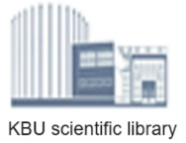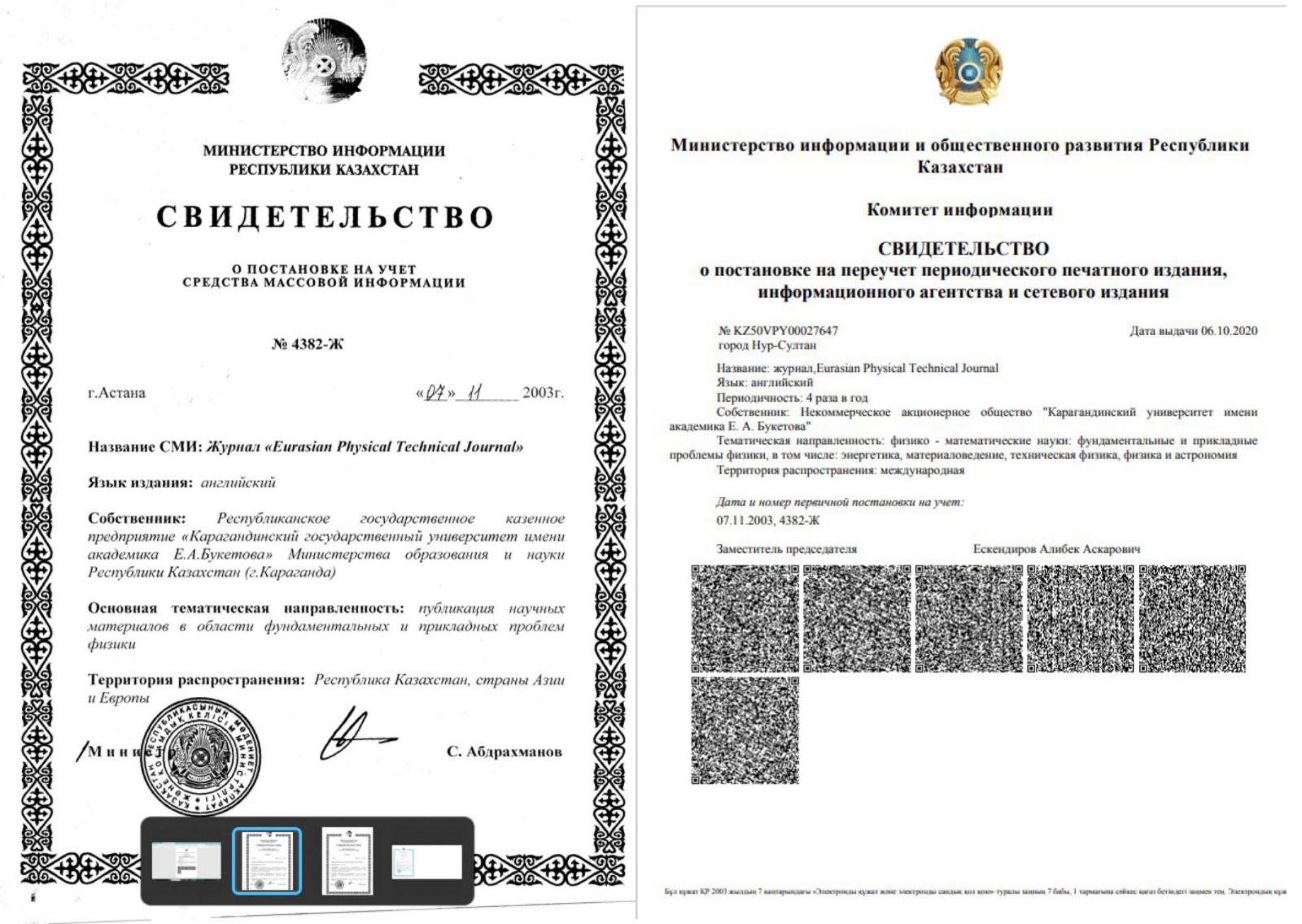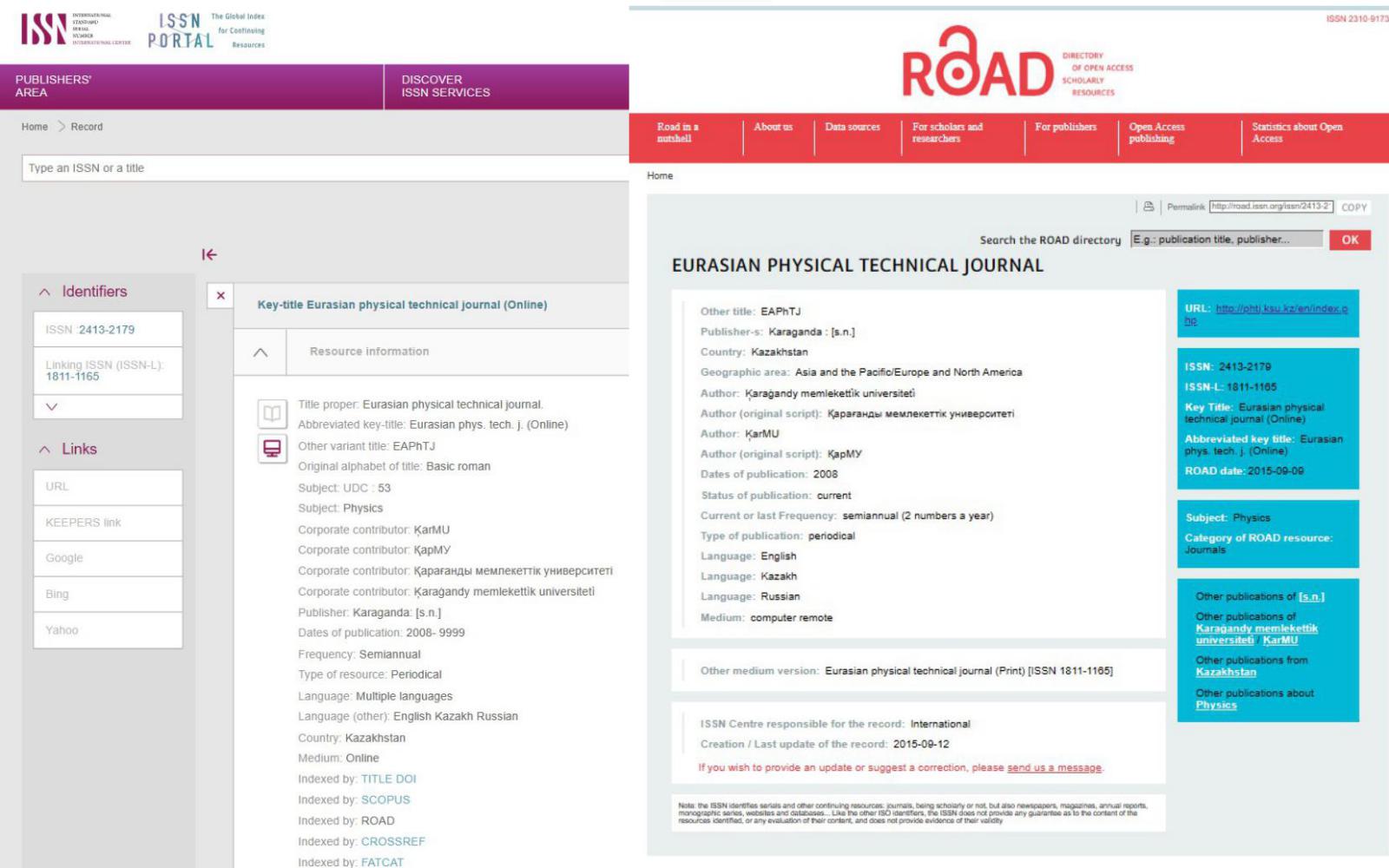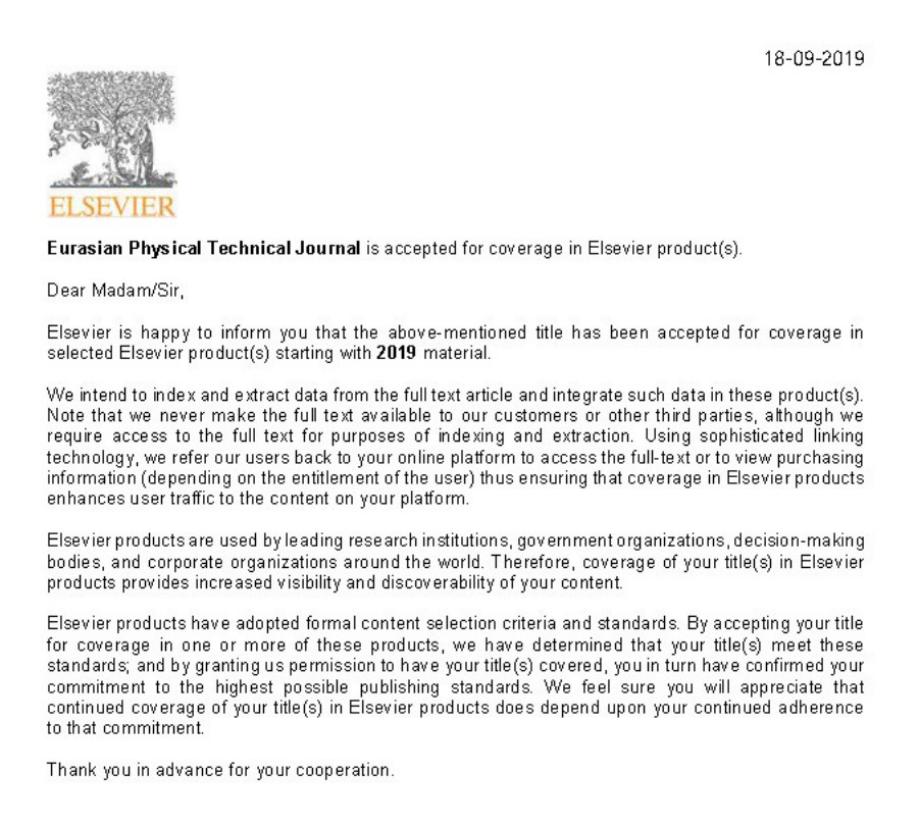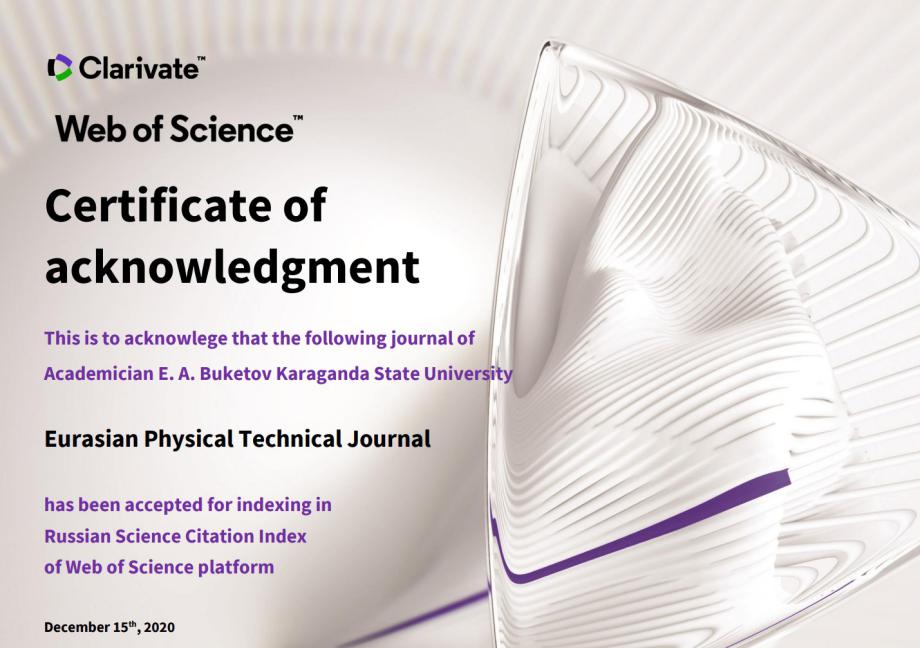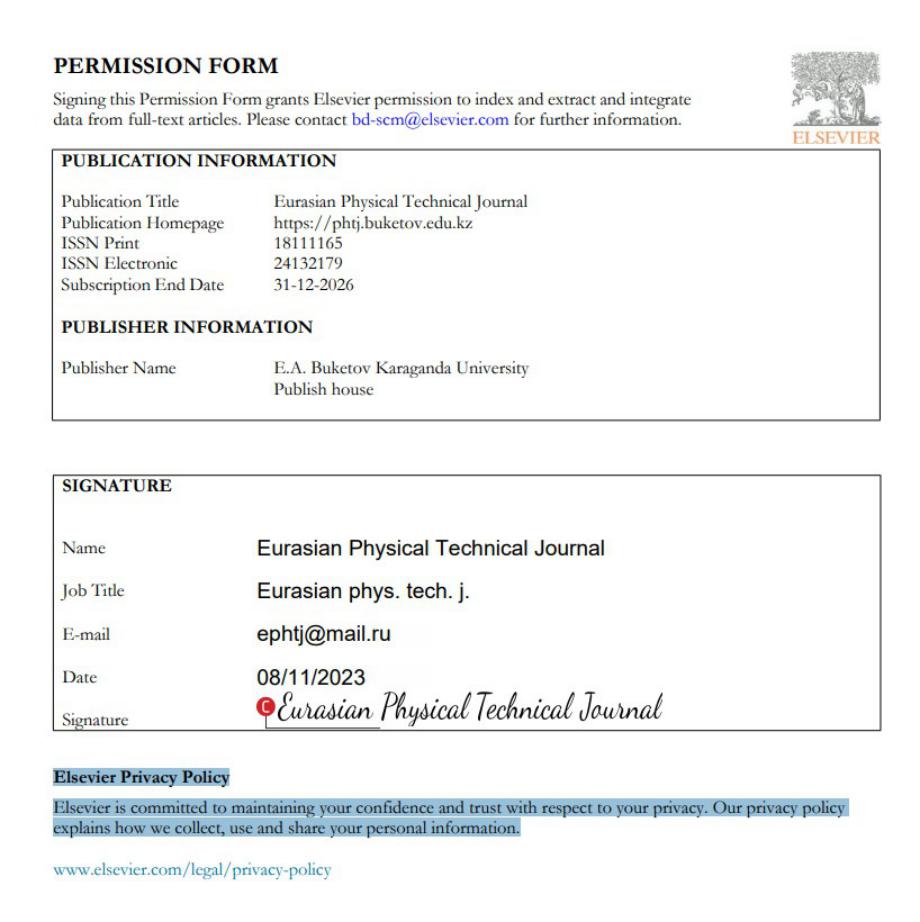Spin-selective interaction of triplet-excited molecules on the surface of a ferromagnetic nanoparticle.
DOI:
https://doi.org/10.31489/2022No4/5-16Keywords:
triplet-triplet annihilation, ferromagnetic nanoparticle, inhomogeneous magnetic field, magnetic effectAbstract
Influence of a magnetic field generated by a ferromagnetic nanoparticle on the annihilation of triplet-excited organic molecules or triplet excitons in a near-surface particle layer is studied. A detailed mathematical model is presented that accounts for electron excitation diffusive mobility and geometry of the system. The kinetic operator is given in the complete 9x9 basis of triplet- triplet pair spin states. Time dependencies of the singlet spin state population of the triplet-triplet pair and the dependence of the triplet-triplet annihilation magnetic response profile (magnetic reaction effect) from the magnetic field induction are obtained. It is found that the influence of a magnetic field gradient on the reaction yield dominates over the other known mechanisms of spin-dynamics in triplet- triplet pairs.
References
"1 Nidya Ch., Ting-Yi Ch., Ping-Tsung H., Ten-Chin W., Tzung-Fang G. The triplet-triplet annihilation process of triplet to singlet excitons to fluorescence in polymer light-emitting diodes. Organic Electronics, 2018, Vol.62, pp.505-510. https://doi.org/10.1016/j.orgel.2018.06.021
Bin H., Yue W., Zongtau Zh., Sheng D., Jian Sh. Effects of ferromagnetic nanowires on singlet and triplet exciton fractions in fluorescent and phos-phorescent organic semiconductors. Applied Physics Letters, 2006, Vol. 88, pp. 022114. https://doi.org/10.1063/1.2162801
Toshihiro Sh. Effect of High Magnetic Field on Organic Light Emitting Diodes. Organic Light Emitting Diode – Material, Process and Devices, 2011, pp. 311-322. https://doi.org/10.5772/20743
Qiaohui Zh., Miaomiao Zh., Yaxiong W., Xiaoguo Zh., Shilin L., Song Zh., Bing Zh. Solvent effects on the triplet–triplet annihilation upconversion of diiodo-Bodipy and perylene. Physical Chemistry Chemical Physics, 2017, Vol. 19, pp. 1516-1525. https://doi.org/10.1039/C6CP06897A
Kolosov D.A., Deryabin M.I. Kinetics of annihilation of triplet excitations and decay of delayed fluorescence for isolated 1,12-benzoperylene pairs. Journal of Applied Spectroscopy, 2011, Vol. 78, No. 4, pp. 601-604. https://doi.org/10.1007/s10812-011-9504-z
Samusev I.G., Bruchanov V.V., Ivanov A.M., Labutin I.S., Loginov B.A. Heterogeneous triplet-triplet annihilation of erythrosine and anthracene molecules on a fractal anodized aluminum surface. Journal of Applied Spectroscopy, 2007, Vol. 74, No. 2, pp. 230-236. https://doi.org/10.1007/s10812-007-0036-5
Zarezin A.B., et al. Study of photophysical processes involving organic dye molecules and superparamagnetic nanoparticles in thin polymer films. Kazan science, 2011, No. 4, pp. 10-13. [in Russian]
Kim H., Weon S., Kang H., et al. Plasmon-Enhanced Sub-Bandgap Photocatalysis via Triplet–Triplet Annihilation Upconversion for Volatile Organic Compound Degradation. Environmental Science & Technology, 2016, Vol. 50, No. 20, pp. 11184-11192. https://doi.org/10.1021/acs.est.6b02729
Poorkazem K., Hesketh A.V., Kelly T.L. Plasmon-Enhanced Triplet–Triplet Annihilation Using Silver Nanoplates. The Journal of Physical Chemistry C, 2014, Vol. 118, No.12, pp. 6398-6404. https://doi.org/10.1021/jp412223m
Uemura T., Furumoto M., Nakano T., et al. Local-plasmon-enhanced up-conversion fluorescence from copper phthalocyanine. Chemical Physics Letters, 2007, Vol. 448, pp. 232-236. https://doi.org/10.1016/j.cplett.2007.09.084
Hervald A.Yu., Gritskova I.A., Prokopov N.I. Synthesis of magnetic-containing polymer microspheres. Success of chemistry, 2010, Vol. 79, No. 3, pp. 249-260. [in Russian]
Bronstein L.M., Sidorov S.N., Walecki P.M. Nanostructured polymer systems as nanoreactors for the formation of nanoparticles. Success of chemistry, 2004, Vol. 73, No. 5, pp. 542-558. [in Russian]
Mamoru M., Yuri Ya., Tadashi N., Kazuhisa Ya. Anomalous Pore Expansion of Highly Monodispersed Mesoporous Silica Spheres and Its Application to the Synthesis of Porous Ferromagnetic Composite. Chemistry of Materials, 2008, Vol. 20, No. 14, pp. 4777-4782. https://doi.org/10.1021/cm702792e
Jinwoo L., Sunmi J., Yosun H., Je-Geun P., Hyun Min P., Taeghwan H. Simple synthesis of mesoporous carbon with magnetic nanoparticles embedded in carbon rods. Carbon, 2005, Vol. 43, No. 12, pp. 2536-2543. https://doi.org/10.1016/j.carbon.2005.05.005
Kucherenko M.G., Neyasov P.P. Features of spin dynamics and annihilation of triplet molecular excitations in nanoreactors with ferromagnetic particles. Chemical Physics and Mesoscopy, 2018, Vol. 20, No. 1, pp. 33-48. [in Russian]
Heer W.A. de, Knight W.D., Chou M.Y., Cohen M.L. Electronic Shell Structure and Metal Cluster. Solid State Physics, 1987, Vol. 40, pp. 93-181. https://doi.org/10.1016/S0081-1947(08)60691-8
Afanas'ev A.M., Suzdalev I.P., Gen M. Ya., et al. Investigation of super-paramagnetism of ferromagnetic particles by Mossbauer spectroscopy. Soviet Physics Jetp, 1970, Vol. 31, No. 1, pp. 65-69.
Amulyavichu A.P., Suzdalev I.P. Investigation of the superparamagnetic properties of ultrafine iron particles by Mossbauer spectroscopy. Zh. Eksp. Teor. Fiz,. Vol. 64, pp. 1702-1711."


